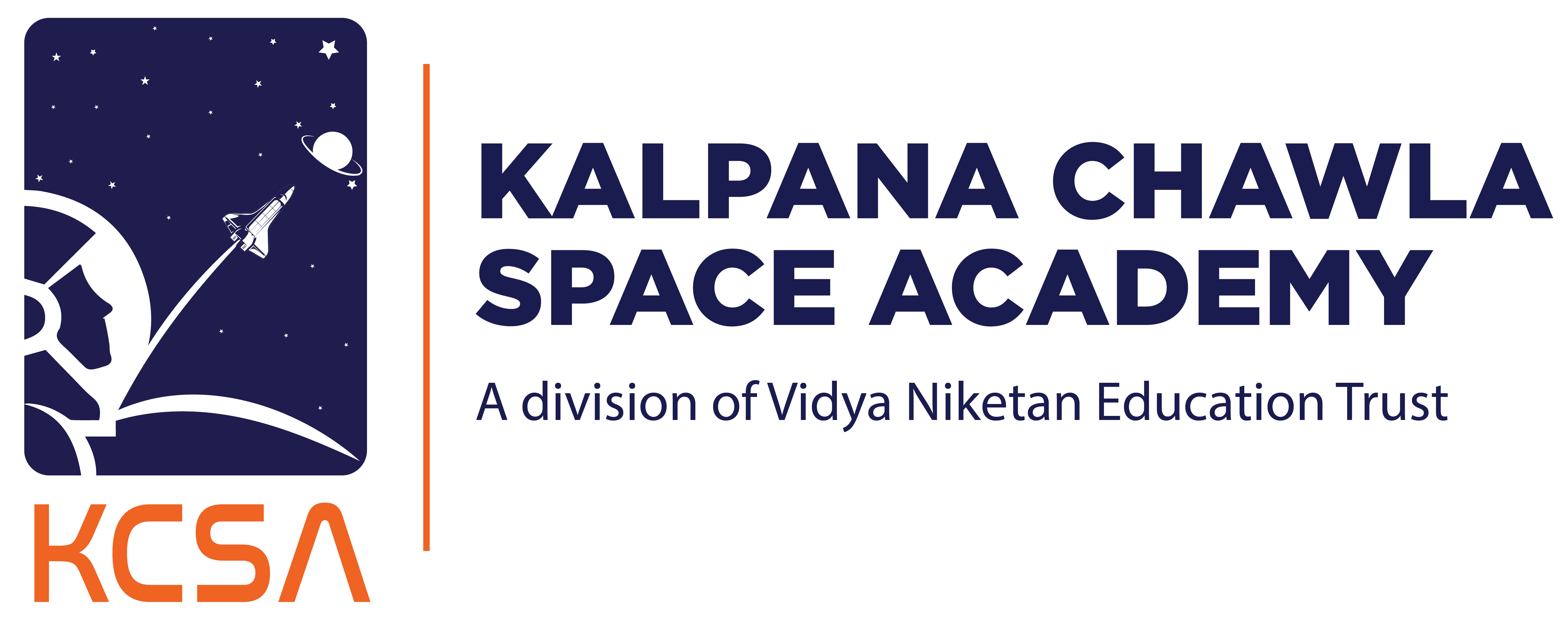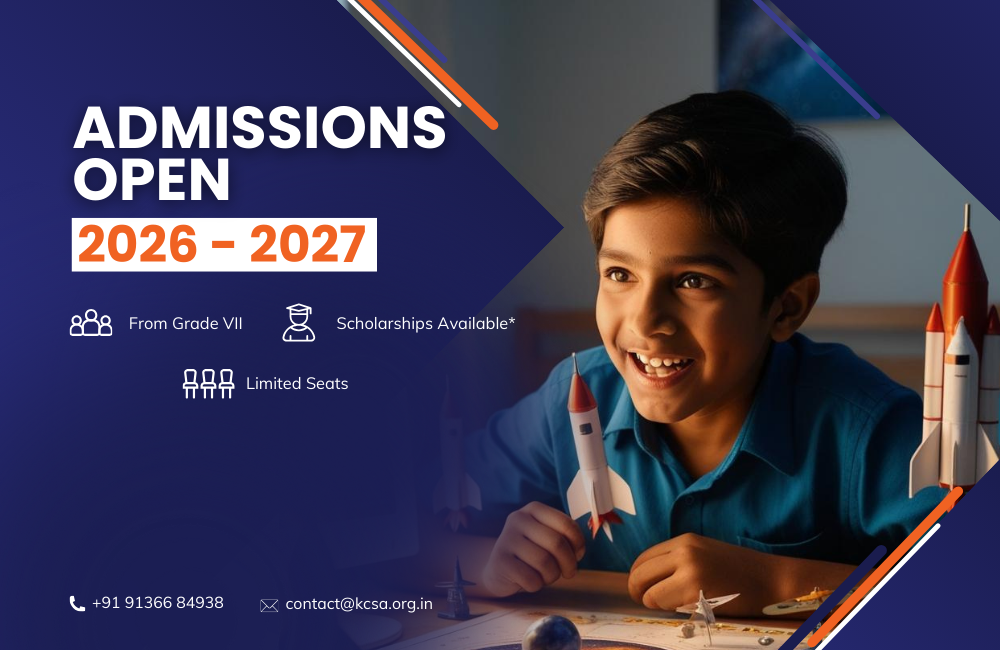About This Course
The rigorous and broad-spectrum curriculum at Kalpana Chawla Space Academy focuses on the all-round growth of the child. Space science courses provide students with a strong foundation in scientific principles, technological innovations, and practical skills necessary for careers in the aerospace industry, research institutions, space agencies, and beyond. These space studies courses prepare students to contribute to the advancement of space exploration, understanding of the universe, and development of new technologies that push the boundaries of human knowledge and capabilities in space. Each year of STEM education consists of certain staple modules that give the student an insight into science, technology, space science, social development, skill-building, physical development, and creative enrichment. Space science courses typically cover a wide range of topics related to the exploration, study, and utilization of space. The space science courses are designed to provide students with a comprehensive understanding of various aspects of space sciences, including astronomy, astrophysics, planetary science, space exploration technologies, and more. Here are some common courses you might find in a space science program:
Curriculum
Curriculum Overview +
- Introduction to Space Science:
- Overview of space exploration history, current missions, and future prospects.
- Astrophysics and Cosmology:
- Study of celestial objects, stellar evolution, galaxies, cosmological theories, and the structure of the universe.
- Planetary Science:
- Exploration of planets, moons, asteroids, and comets, including geology, atmospheres, and potential for life.
- Spacecraft Systems and Design:
- Principles of spacecraft design, propulsion systems, communication systems, and mission planning.
- Remote Sensing and Earth Observation:
- Techniques and applications of remote sensing from space for environmental monitoring, climate studies, and resource management.
- Space Instrumentation and Data Analysis:
- Design and operation of instruments used in space missions, and analysis of data collected from space telescopes, satellites, and probes.
- Space Environment and Radiation:
- Effects of space environment (radiation, microgravity) on biological systems and spacecraft operations.
- Exoplanets and Astrobiology:
- Study of planets beyond our solar system and the search for extraterrestrial life.
- Space Policy and Law:
- Legal and policy frameworks governing international space activities, commercial space ventures, and space exploration.
- Space Robotics and Automation:
- Design, operation, and programming of robots for space exploration and maintenance tasks.
- Advanced Topics in Space Technology:
- Emerging technologies in space exploration, including nanosatellites, space habitats, and propulsion innovations.
- Space Missions and Operations:
- Case studies of successful space missions, mission planning, operations management, and challenges faced in space exploration.
- Space Weather and Solar Physics:
- Study of solar activity, solar wind, geomagnetic storms, and their impact on Earth and space missions.
Practical and Laboratory Facilities +
- Space Science Laboratory:
Hands-on experiments in astrophysics, astrochemistry, astrogeology, earth science, seismology, data analysis, and simulation of space phenomena. Delivering experiential learning to students with 200+ experiments which improve learning outcomes.
- Field Trips and Observational Astronomy:
Visits to observatories, participation in astronomical observations, space planetarium, earth study, and practical training in observational techniques.
Capstone Projects and Research Opportunities +
- Research Projects in Space Science:
- Independent or collaborative research projects on topics such as planetary geology, astrophysical modelling, or satellite technology development.
- Internships with Space Agencies or Companies:
- Practical training and experience in space missions, satellite operations, or research and development within the space industry.
Sanskrit +
Sanskrit is the mother of all languages. Its grammar is most evolved. Sanskrit texts have ample knowledge of various topics, like health and medicine, astrology, mathematics, political science, and much more.
STEAM Education +
STEAM Education with dynamic modules, which teach students about linking experiments of scientific laws and mathematical concepts to practical applications in Science, Technology, Engineering, and Math through STEAM kits.
- Basic electronic and electrical engineering
- Robotics
- Electronics and sensors
- Space technology
- STEM Kits
- Models on 3D printer
- Coding
- Graph plotting
Skills Development +
- Critical Thinking: Analyzing complex space-related phenomena and data.
- Problem-Solving: Addressing challenges in spacecraft design, mission planning, and space exploration.
- Communication: Presenting findings and proposals to diverse audiences, including scientists, policymakers, and the public.
- Teamwork: Collaborating with multidisciplinary teams in research projects and space missions.
Field Work +
- Invite Scientists from ISRO and other organizations/universities/government bodies/scientists/researchers for a talk about the current projects and future endeavors, ignite curiosity in the students.
- Highlight notable achievements and successful missions.
- Workshops/webinars/seminars/conferences/summits/symposiums.
- Engage participants in hands-on activities related to space science.
- Excursion - Organize a field trip to a planetarium or a science museum.
- Encourage creativity and innovation through participant presentations.
- Scheduled activities as per academic calendar.

